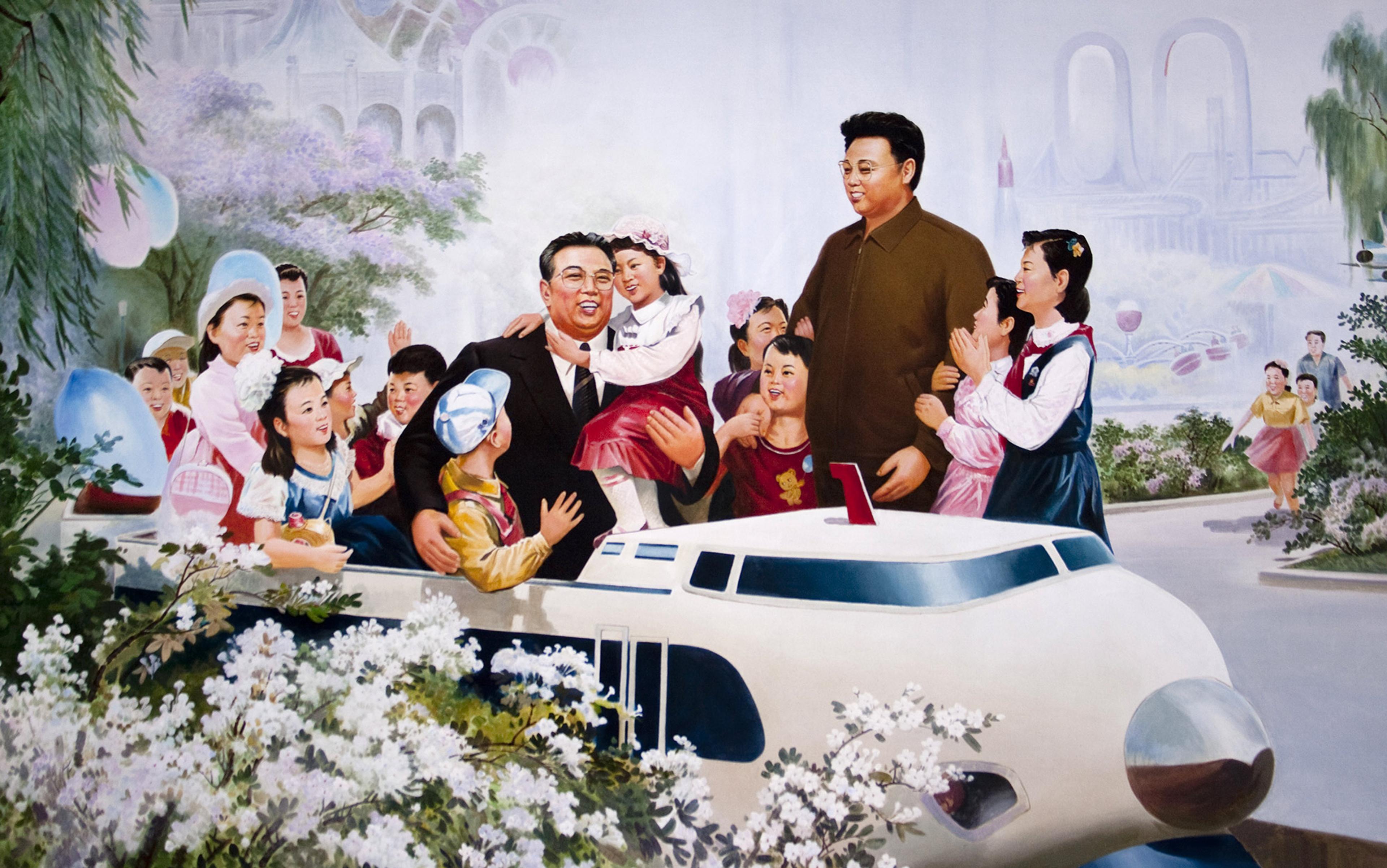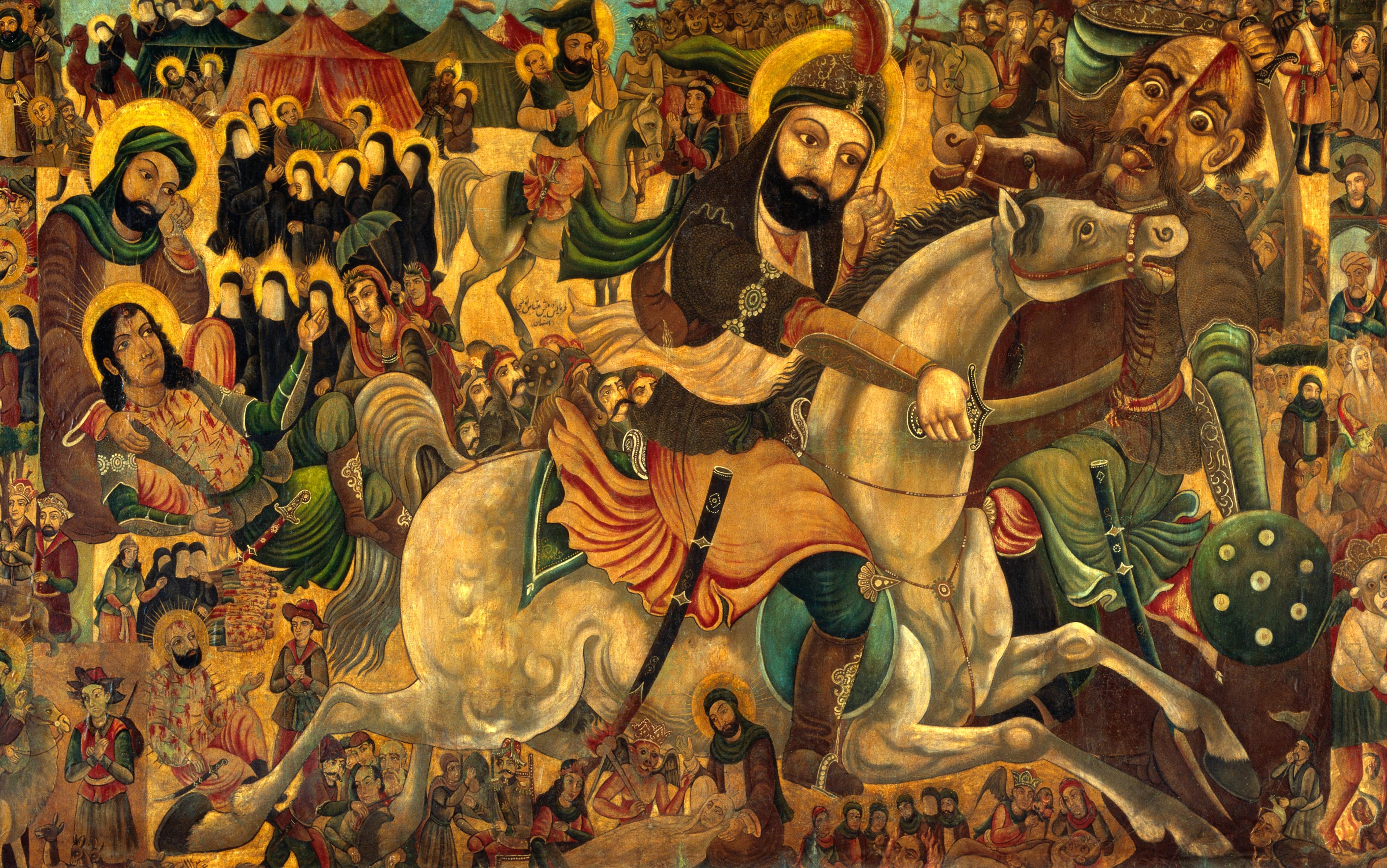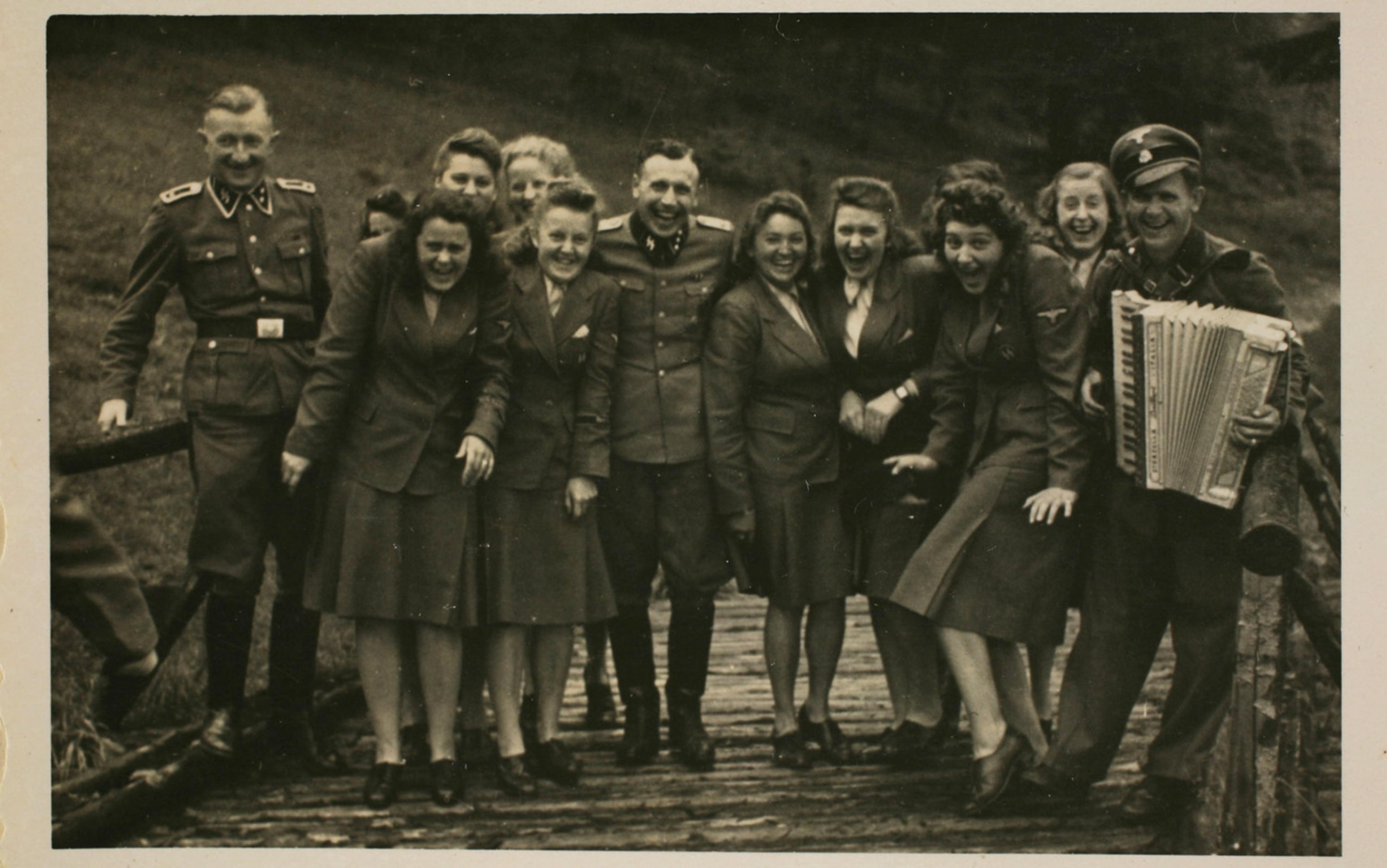A few years ago I discovered that my friend Tom was a white supremacist. This put me in a strange position: I am a Muslim and the daughter of immigrants. I am a member of one of the so-called invading groups that Tom fears and resents. He broadcasts his views from his social media accounts, which are a catalogue of aggrieved far-Right anger. One post warns ‘the Muslim invaders to keep their filthy hands off our women’. Another features a montage of black faces above the headline: ‘This is the white race after “diversity”.’ Underpinning this is a desperate resentment of ‘liberal Leftie attempts to control free speech’.
Tom has never mentioned any of these ideas to me; on the contrary, in person he is consistently warm and friendly. He vents his convictions only online, and it seems unlikely that he would ever translate them into violent actions. And yet much the same was once said of Thomas Mair, the 52-year-old from Birstall, a village in northern England, who spent time helping elderly neighbours tend to their gardens, and who in 2016 murdered the pro-immigration MP Jo Cox, while shouting: ‘This is for Britain!’ His actions were found to have been inspired by white supremacist ideology.
James Baldwin was right to say that ideas are dangerous. Ideas force people to confront the gap between their ideals and their manifestation in the world, prompting action. Ideas can prompt change for better or for worse – and often both at the same time. But attempts to create change are always charged with danger: to act in new ways is to erode old limits on our behaviour. In the forging of new territory – and the sense of danger that accompanies it – actions that might once have been deemed excessive can come to seem not merely necessary but normal.
But to understand what has led someone to extremism it is not enough to point to ideology. Ideas alone did not bring Mair to leave his home that morning with a sawn-off shotgun and a seven-inch knife. The accounts that emerged in the weeks after Cox’s murder dwelt on many details of Mair’s previously blameless life. But more than anything else, they repeatedly echoed the words of a woman who runs a meditation centre in Mair’s local area, which he visited the evening before he killed Jo Cox: ‘He just seemed a really lonely guy who wanted someone to talk to.’
It is worth knowing that my friend Tom finds little satisfaction in his daily life. He does not enjoy his work and has never had a romantic relationship. His part of Oxford is thick with cultural diversity but he has few friends there. A mutual friend once described Tom as seeming spiritually wounded. Like Mair, he exudes an aura of biting loneliness.
‘Loneliness is the common ground of terror’ – and not just the terror of totalitarian governments, of which Hannah Arendt was thinking when she wrote those words in The Origins of Totalitarianism (1951). It also generates the sort of psychic terror that can creep up on a perfectly ordinary individual, cloaking everything in a mist of urgent fear and uncertainty.
By ‘loneliness’ Arendt did not simply mean solitude, in which – as she points out – you have your own self for consolation. In the solitude of our minds, we engage in an internal dialogue. We speak in two voices. It is this internal dialogue that allows us to achieve independent and creative thought – to weigh strong competing imperatives against each other. You engage in it every time you grapple with a moral dilemma. Every clash of interests, every instance of human difference evokes it. True thought, for Arendt, involved the ability to put ourselves in someone else’s shoes. True loneliness, therefore, was the opposite. It involved the abrupt halting of this internal dialogue: ‘the loss of one’s own self’ – or rather, the loss of trust in oneself as the partner of one’s thoughts. True loneliness means being cut off from a sense of human commonality and therefore conscience. You are left adrift in a sea of insecurity and ambiguity, with no way of navigating the storms.
Adolf Eichmann was a senior SS officer who was involved first in the voluntary emigration of Jews, then in their forced deportation, and finally in their extermination. According to Arendt, Eichmann exhibited just such loneliness. He had an ‘almost total inability ever to look at anything from the other fellow’s point of view’ – to empathise in a way that would have meant stepping outside his own Nazi worldview. When questioned about his past by a Jewish policeman in Israel, he defaulted to self-pitying explanations about why he had not been promoted to a higher rank in the SS: ‘Whatever I prepared and planned, everything went wrong … whatever I desired and wanted and planned to do, fate prevented it somehow.’ As Arendt drily notes, it didn’t occur to Eichmann that his interviewer was unlikely to value a rapid rise through the ranks of the SS in the same way that Eichmann himself did.
It was loneliness, Arendt argued, that helped Eichmann and countless others – who might otherwise be models of amiability, kind to their subordinates and inferiors (as Eichmann was reported to be) – to give themselves over to totalitarian ideologies and charismatic strongmen. These totalitarian ideologies are designed to appeal to those who struggle with the internal moral dialogue that Arendt valued as the highest form of thought.
Totalitarian ideas offer a ‘total explanation’ – a single idea is sufficient to explain everything. Independent thought is rendered irrelevant in the act of joining up to their black-and-white worldview. Eichmann himself was always a ‘joiner’ who feared the possibility of ‘a leaderless and difficult individual life’. Becoming an ‘idealist’ assuaged these fears (the word is perhaps better read as ‘ideologue’). After all, if you sign up to the idea that class struggle, racial competition or civilisational conflict is absolute, then you can achieve meaning and kinship as part of a race, class or civilisation without ever requiring two-sided thought – the kind of thought that involves weighing competing imperatives and empathising with a range of people. For Arendt, the evils of the Final Solution were enacted by joiners such as Eichmann. It was pointless to argue with them that their logic was flawed, or that the facts of history did not support it. That wasn’t really why they had signed up to it in the first place.
The act of ‘joining up’ to an absolute ideology involves a kind of winnowing. It happens when someone begins to see the world through the lens of a single story. Friction with a teacher at school, or a struggle to find work, or a neighbourhood becoming more culturally mixed, or casual racism begin to seem like facets of one simple problem. And simple problems offer the alluring prospect of simple, radical solutions. If all our problems are simply part of a bigger story of an inevitable clash of civilisations between the West and Islam, then one has only to pick a side. It seemed to me that Tom – like Eichmann – had found his ideology, and had picked his side.
They neglect their capacity for independent thought in favour of total commitment to their chosen movement
Of course, Tom is not alone. When I talk to him I am reminded of the young men and women I have interviewed who have expressed their sympathy and support for ISIS, Al-Qaeda, and other violent terror groups. Like Eichmann, many were joiners, drawn to the binary answers and black-and-white worldview on offer. Not one of the jihadist supporters I got to know seemed inherently evil. But all of them viewed the world through jihadist clichés – they struggled with two-sided thought. The theme of turning away from ambiguity and empathy runs through jihadist propaganda. ISIS’s English-language magazine repeatedly criticised the ‘grayzone’ – a term used to describe anything that lay between their own ideology and that of the kuffar, or unbeliever. The epithet was often directed at the space of compromise that immigrants inhabit: between two cultures, two sets of values, and two ways of life. More than one ISIS supporter told me that the problem with Western Muslims was that ‘they are living in the grey area, confused, hesitant and ashamed of their Deen [religion]’.
To say that someone struggles with two-sided thought is not to say that he is stupid: Tom is an engineer by training, and many of the jihadist-sympathisers I have interviewed have had higher education. But they are thoughtless in that they neglect their capacity for independent thought in favour of total commitment to their chosen movement. Like Tom, most of these jihadist supporters had never taken any violent action. But many also mirrored Tom in their concrete adherence to a single ideological premise that seemed to them to explain the world. Like him, they believed that the West and Islam were two clear opposing entities engaged in an unstoppable war. They had simply chosen to support the other side.
If loneliness is the common ground of terror, then there is something fundamentally wrong with the way that we talk about extremism – particularly the jihadist variety. All too often it is viewed as a foreign threat: an infection from an alien civilisation.
Arendt suggested that certain kinds of solitude made people vulnerable to loneliness and therefore to terror. She drew particular attention to a structural problem: the ‘uprootedness and superfluousness’ of modernity. The breakdown of pre-modern political institutions and social traditions had created societies in which people had ‘no place in the world, recognised and guaranteed by others’, and – crucially – no sense of belonging. Society is the mirror in which we see ourselves. Finding our place within it – in ‘the trusting and trustworthy company of equals’ – helps us to understand our own identities, to know ourselves, and to trust our own thoughts. When we are excluded from society, we are vulnerable to the kind of fear and insecurity Arendt talked about. But while Arendt was thinking of alienation among the bourgeoisie, her words acutely describe another experience of not-belonging that is common in Western societies today.
Last year I interviewed someone currently undergoing trial for disseminating terror materials in the UK. As we talked, he returned again and again to a complaint that underpinned his interest in violent extremist materials.
‘I don’t have a place where I can say this is my place,’ he said. ‘A sense of belonging – we don’t have that.’ ISIS had gone a bit too far, he conceded, ‘but their idea of having a place like that – where we can belong…’ His face was bright and his smile was easy as he contemplated the idea. ‘That’s it, it’s as simple as that.’
Belonging – or rather its absence – is a common theme among extremists. Take the case of Abdullahi Yusuf – a Somali-born 17-year-old from Minnesota who tried to join ISIS in 2014 but was stopped at the border. Like so many young extremists, Yusuf was well-integrated into Western society. He had an American accent, loved NBA basketball and supported the Minnesota Vikings. But it is possible to be well-integrated and still feel as if you do not really belong. Yusuf had moved schools three times in a single year – once because the school had been abruptly shut without warning. He didn’t ‘know anyone successful’, as he told New York magazine in 2017, and – perhaps even more importantly – he felt as if there was no way to cling to his Somali and Muslim identity while also finding a place in the US. At his trial, Yusuf spoke about watching videos that told him ‘that Muslims shouldn’t live in the West, that it’s better for them to make a journey to an Islamic State … it’s a better place to live.’ By the time he watched them, he and his friends were ripe for the ideology on offer.
Difference always produces friction. But we rarely acknowledge that no problem of difference is one-sided: difference always involves two parties. And the story of young jihadist supporters is rarely a simple story of failed integration. It is often at least partly a story of young people feeling as if they do not belong in the West, despite having integrated – despite speaking the language and wearing the clothes and adopting the customs. One young female ISIS supporter said: ‘I remember the kuffar telling me: “Go back where you came from!” So I went to the Islamic State :-).’ An American-Somali man from the US who tried to join ISIS spoke with quiet anger about how ‘You have to come here and adapt, and adapt…’
Why should any young woman learn to deal sensitively with being told to go back to where she came from?
In these stories, I see the failure of these young people to think in a two-sided way. They struggled to see that the ‘greyzone’ is not a terrible place to live. Life is not simply a story of cultural difference. If loneliness is a failure to engage in independent, empathetic thought, then these individuals were achingly lonely.
But I also wonder why young people who were born and raised in the West should always have to shoulder the burden of thoughtful compromise. Minorities are – by their nature – less powerful than majorities, and consequently less able to give up things without losing their identity altogether. Why should any young woman have to learn how to deal sensitively with being told to go back to where she came from? And why should any young man feel he has to give up wearing foreign clothes, or shed traces of his parents’ foreign accent, or avoid expressing his foreign religion – in order to have a future in the country he was born in? Isn’t their failure to feel at home in the West simply a reflection of the majority’s failure to feel at home with them? Their loneliness has not sprung from nowhere – it is nurtured by their daily lives in the West.
What is the right way to deal with these lonely extremists? If Arendt is right, then the structural causes of loneliness run deep – often, far too deep for a few personal connections to make a difference.
‘I sometimes go a bit too far online,’ Tom admitted to me once, before gently asserting that he didn’t have a problem with me. He was invoking a common distinction: between the collective group – which he fears and stigmatises – and the individual member of that group whom he professes to know and like. It is a sentiment that often begins with the words: ‘Some of my best friends are…’ Eichmann, who allegedly had a Jewish mistress, was also unaffected by his friendships. The businessman Berthold Storfer was a Jew from Vienna who worked closely with Eichmann to deport Jews to Palestine under the Nazi regime in 1940. Sometime later, Storfer went into hiding and was caught and sent to Auschwitz. He asked for Eichmann, who visited to tell Storfer he was unable to help: Heinrich Himmler’s rules were inflexible – nobody could leave the camps. Eichmann chided Storfer for having tried to run, but had him moved to a less strenuous work duty. ‘We shook hands,’ Eichmann said later, ‘it was a great inner joy to me.’ Six weeks after this happy encounter, Arendt notes, ‘Storfer was dead – not gassed, apparently, but shot.’
Knowing me has made little difference to Tom’s broader ideology, and to his conviction that immigrants in general and Muslims in particular are the great enemy of our time. Factual debate also makes no impact. When our mutual friends disagree at length with Tom’s extreme opinions, he hardens into polarised opposition. He is quiet but stubborn, retreating into his shell with a wounded air. Of course, all of us suffer at times from confirmation bias – a tendency to favour information that supports our existing beliefs. But Tom does not simply prefer certain facts to others – he seems almost uninterested in them. Instead, he returns repeatedly to cliché (something Arendt also noted in Eichmann). ‘Religion taking over like it always has,’ he writes in a typical post, ‘sharia will creep to power and form an Islamic State.’ This is beyond the common run of immigration-skepticism and the distaste for religion that any decided atheist might have. It drums out a single narrow account of the world – past, present and future.
There is chilly logical consistency to Tom’s ideas. If you presume that Western culture represents a single (and singularly enlightened) worldview, then it follows that non-white immigrants attached to less perfect cultures are a threat that must be stopped. If you are convinced that Islam also entails a single worldview that is coincidentally the total antithesis of the consummately enlightened Western approach, then it follows that it must be fought. If you have already decided that civilisation is all that matters in this story, then what need is there for anything else? In ‘Ideology and Terror’ (1953), Arendt suggested strict self-evident logicality was the main capacity left to those who could not engage in true thought: the fact that two and two equals four cannot be denied ‘even under the conditions of absolute loneliness’. Such logical reasoning becomes ‘the only reliable “truth” human beings can fall back upon’ once they have lost the sense of mutuality needed to know their way in a common world. (Though there might be other reasons for this correlation, it has often been noted that a disproportionately large number of violent Islamist extremists have backgrounds in engineering, science or maths.) Logic, after all, needs neither the self nor the other in order to function. Only one premise matters – and it must be allowed to race freely through mankind, executing its inherent law.
Truth is simply not as relevant as what seems to be the truth
Tom’s narrative has no need of facts. They are beside the point. Like other ideas that aspire to ‘total explanation’, the narrative pretends ‘to know beforehand everything that experience may still have in store’. Armed with omniscient knowledge of the ‘true’ cause for all events, believers are relieved of their sense of insecurity. Here, at last, is a consistent explanation for everything. Totalitarian ideas emancipate their believers from reality: their worth lies in presenting a coherent absolute narrative of the world, which, as Arendt noted in Origins, is ‘more adequate to the needs of the human mind than reality itself’. Experience is irrelevant: there is nothing new to be learned about the situation. The idea of a Jewish world conspiracy was once made to seem more true than reality by the Nazis, who simply acted ‘as though the world were dominated by the Jews and needed a counterconspiracy to defend itself’. Truth is simply not as relevant as what seems to be the truth.
When Arendt argued that loneliness was the common ground of terror, she was not thinking of individual acts of terrorism perpetrated by those on the margins – but of the terror of authoritarian ideologies and governments being slowly embraced by society’s dominant majority. The ideal subject of these governments, she argued, was not a convinced extremist but simply an isolated individual, too insecure in himself to truly think: someone for whom the distinction between true and false was beginning to blur, and the promise of a movement was beginning to beckon. Tom did not always hold the beliefs he espouses now. Friends who have known him longer tell me that although he had a troubled early life, his current views crystallised only in his late 20s. But he was once, perhaps, the sort of ideal subject Arendt described.
Tom seems no more evil to me than the angry young ISIS and Al-Qaeda supporters I have talked to. Indeed, I find it impossible to actively dislike him. I rarely see him but when I do he is gentle and amiable, and so clearly unhappy in his loneliness that it is difficult not to feel sorry for him. He is not Iago and not Macbeth, and has no desire ‘to prove a villain’. Thoughtlessness is not a rare quality, and if history were to unfold in a certain direction then he would not be the only person later held to account for supporting entirely logical brutalities. I doubt that most would even fully realise what they were doing.






